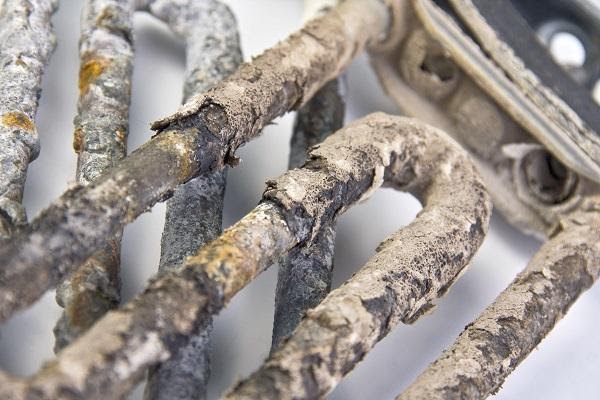The current estimates state that more than 85% of American homes deal with hard water. Salt-based water softeners have been so far the go-to solution of dealing with hard water and removing limescale from your home. Nevertheless, water softeners are now meeting a handful of bans and restrictions due to their negative environmental impact. For this reason, people are actively looking for new technologies to manage and eliminate the adverse effects of limescale on their pipes, fixtures, appliances, and surfaces.
1. Water Descalers
One of the most popular answers to the water softeners’ ban, electronic water descalers do not alter the water during the treatment process.
This type of equipment is relatively new and innovative, as it changes the structure of the hardness minerals, impeding them to stick to the inside of pipes, fixtures, appliances, or on surfaces. For this reason, an electronic water descaler is a healthier alternative to water softeners as it does not add or remove anything from the water. Moreover, its installation and maintenance are more straightforward and comfortable in comparison to other water softening systems.
Water descalers are an eco-friendly option to other limescale-removing systems, also being more affordable and requiring almost no plumbing skills for installation or maintenance. You can install an electronic descaler directly on the pipes.
One of the main advantages of water descalers is that they work with PVC pipes as well. These pipes are not safe from hard water and limescale deposits, as you think.
2. Template Assisted Crystallization
TAC technology is even newer than electronic water descaling. They use neither salt pellets nor electricity to work. Instead, they use ceramic-polymer beads as a treatment medium for your water.
The resin in the TAC system changes the structure of the hardness minerals from their ionic form to a crystal form – much like some water descalers do. The minerals in the water do not attach to the inside of the pipes or appliances.
Template Assisted Crystallization does not remove the calcium and magnesium minerals in your water. In other words, you can still enjoy the healthy minerals. TAC technology is one of the best alternatives to water softeners, gaining full acceptance in the industry.
Both TAC systems and water descalers require minimum maintenance, prevent pipe corrosion, and prevent scale buildups inside appliances or on surfaces. By comparison, water descalers are more affordable and practical than TAC tanks, while both are significantly cheaper than conventional salt-based water softeners.
3. Reverse Osmosis Systems
Reverse osmosis filters are not new on the market. On the contrary, they are established products becoming increasingly popular, especially in the current American contaminated water situation. Clean, safe water from the tap is something we all want, and these types of water filtration systems do a great job, despite some environmental issues attached to them.
If you wonder how a reverse osmosis water filter can help you solve the hard water problems in your home and eliminate limescale, you should know the following:
- Such a system removes the tiniest impurities and contaminants, from heavy metals like lead to chlorine, bacteria, viruses, and other toxins or chemicals;
- More importantly, reverse osmosis systems also clean the water of dissolved particles such as metals or minerals that play a crucial role in pipe corrosion.
Depending on the type of RO filter you want for your needs, you can install a whole house RO filtration system or an under-sink RO filter.
By comparison to water descalers, they take up some space, so make sure you have enough wiggle room in your home or kitchen. Concerning affordability, some RO systems are more expensive than electronic water descalers and require a certain amount of plumbing skills.
Are you using a salt-based water softener alternative in your home to get rid of limescale and solve the hard water problems once and for all? Which is your preferred system?

